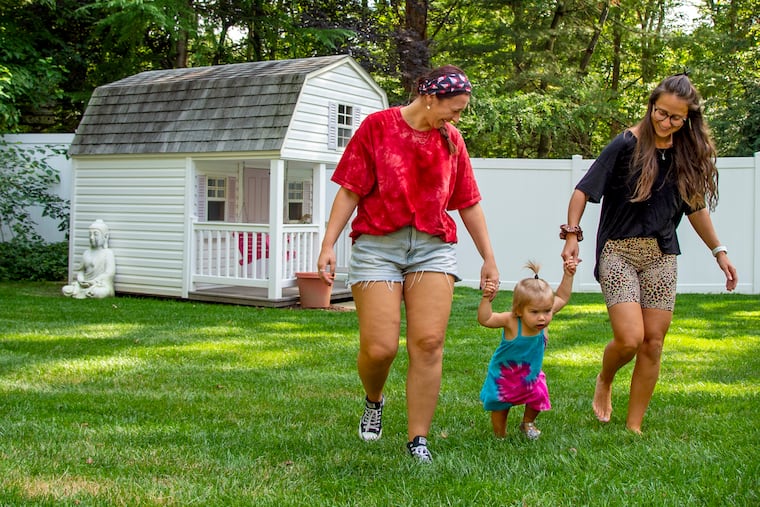Here’s how much you should pay babysitters in the Philadelphia area
Experience, expectations, and children's needs should all be taken into account when determining whether to pay a babysitter more than their standard hourly rate.

The average hourly rate for babysitters is rising faster than inflation. And if you’re a new parent — whose last experience with the babysitting world may have been when you were watching kids a decade or more ago — you may need a primer.
Philadelphia parents last year paid on average $18.03 an hour for someone to watch one child and $20.78 for someone to watch two children, according to UrbanSitter, a platform for finding caregiving. Those numbers may sound steep, but they’re below the national average of $22.68 and $25.37.
» READ MORE: Skyrocketing babysitting rates could cost Philly parents hundreds for a night without the kids
And they aren’t cut and dry.
“If you come over my house and my child is already in the pajamas,” ready to sleep for most of the time their parents are out, a lower rate would be acceptable, said Lynn Perkins, founder and CEO of UrbanSitter. On the other hand, if you’re asking a babysitter to drive your child to after-school activities, help with homework, and make dinner, you should pay them more.
Some babysitters will ask for a specific hourly rate, or provide a range, during an initial conversation or interview with a family.
If they don’t, first consider the going rate in your area. Ask your friends and relatives what they pay. The rate can vary by neighborhood, and it might be different from the data on UrbanSitter, where sitters skew older and more experienced. Care.com, for example, suggests a Philadelphia babysitter with little experience should be paid $16.25 to watch one child for five hours a week.
Regardless of whether you or your sitter are setting the standard hourly rate, the following questions can help determine whether you should pay a babysitter more than that, according to UrbanSitter and Care.com:
How many children is the babysitter watching?
Rates don’t need to be doubled or tripled for two or three children, but UrbanSitter recommends throwing in an extra dollar or two an hour for each additional child. You might also pay more if you’re asking a sitter to watch a newborn, or young twins or triplets.
Does your child have special needs?
Does your babysitter have to administer medication? Are they caring for a child who is nonverbal or requires more help with changing, bathing, or other activities than other children their age? If your child has any special needs, pay your sitter more than the going rate, especially if the sitter has special certifications or trainings.
Will the sitter be required to do other chores?
With people’s increasingly hybrid work schedules, the line between babysitter and nanny is getting blurrier, Perkins said. Some babysitters are expected to drive children to activities, cook, clean, do laundry, help with homework, or walk the dog. If you’re asking your sitter to do any of those activities, they should be paid more. Care.com suggests $1 to $2 more an hour, depending on how much is being asked of them. Basic tidying up or getting a child a snack does not require extra pay.
Does your sitter has special certifications, degrees, or experience?
If your babysitter has a degree in Early Childhood Education or Special Education, or certifications or trainings, they should be paid more than a high school or college babysitter. If they’ve been babysitting for years, or have worked as a full-time nanny, childcare center employee, or teacher, also consider paying them more.
Are other expenses being incurred during the course of their job?
If a sitter is making a trek to your home, you might reimburse them for gas or pay for a SEPTA or PATCO card. If they’re driving your children often, in your car or their personal vehicle, consider giving them a gas credit card or paying them back for mileage. If they are paying for meals, babysitting supplies, or outings with the children, reimburse them.